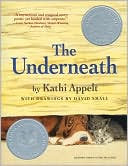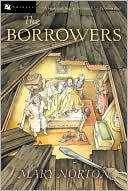Defining Modern Fantasy-
Modern fantasy is about beings, places and events not occurring in the real world. Identifiable authors create extraordinary characters and worlds which challenge and expand our sense of the norm.
Qualities in Modern Fantasy
- stories must always meet criteria for excellence in narrative fiction
- effective settings are detailed and believable within the context of the story
- themes are meaningful, challenging the reader to ask questions and think about life
- writing is rich and structures, syntax and word choices are clear
- story events are imaginative, and logically consistent within the story world
- characters are multidimensional, with consistent and logical behavior
A writer makes fantasy seem believable by providing vivid descriptions of characters, setting and action while giving details such as color, taste, and smell of the fantasy worlds. Writers also engage the hearts of the reader by grounding the story in reality and the human condition: humor, joy, grief, pride, shame, hope, and despair. Lastly, the writer maintains consistency by abiding by the rules established in the fantasy world. Veering from the rules causes the reader to stop and speculate about the viability of the story, preventing suspension of disbelief.
Types of Fantasy
| Animal |
|
Mercy Watson by Kate DiCamillo
| 
The Underneathby Kathi Appelt
|
| Miniature Worlds/Enchanted Realism |
| 
The Borrowers by Mary Norton
| |
| Literary Lore |
|
The Stinky Cheese Manby Jon Scieszka
|
Rapunzel's Revenge by Shannon Hale
|
| Quest Tales |
|
The Thief Lord by Cornelia Funke
|
Harry Potter series by J.K. Rowling
|
Galda, L., Cullinan, B. E., & Sipe, L. R. (2010). Literature and the child. Belmont, CA: Wadsworth/Cengage Learning, p. 207-208.
Why is Modern Fantasy important to teach?
Modern Fantasy incorporates some of my favorite books of all time. The Wizard of Oz, Charlottes Web, Winnie The Pooh are just a few examples of what demonstrates Modern Fantasy literature.
So why is Modern Fantasy important to teach? When reading fairy tales or modern fantasy, children learn how to use their imagination, to view situations from various perspectives, and to know that events can be seen from different viewpoints. These stories are not real, they are even sometimes unimaginable. Modern Fantasy captures the interest of children and adults, and allows them to use their imagination, something that may not often be tapped into, to create an image of the story they read.
Categories of Modern Fantasy include: Time Warps, Unreal Worlds, Ghost Stories, Magic Powers, Preposterous Characters/Situations and Quest Tales. ( Johnson, pg.149.) Time Warps focus on the main character moving through difficult periods of time and life through ideas such as time travel. When You Reach Me, by Rebecca Stead, is a great example of the category time warps. When You Reach Me Book Trailer
Unreal worlds can be defined as a story that is set in a fantasy land. The fantasy land is so developed that it makes the world almost believable to the reader. Books in this category have so much detail, so much fantasy that the books themselves seem to come alive. I love the category of unreal worlds because it helps spark students imagination. I would use books such as these in my English class. Reading a story like Coraline by Neil Gaiman, we can then use the book to write alternate endings, a writing strategy. Books that are so developed such as Coraline, are also sometimes made into feature films. Reading this book then becomes an entire unit of study that you know the students will be interested in following.
The next categories Ghost Stories and Magic Powers can be linked to one another. Ghost stories speak of ghosts and hauntings. Magic Powers is just that. A character can have powers. If we correlate the two together, we can say that a character can see ghosts, using a magic power to see the ghost.
The last two categories in this section are Preposterous Characters/Situations, and Quest Tales. Preposterous Characters are characters developed through clear and descriptive images. The features, dress, looks, and personality are so descriptive in this type of reading, that you can close your eyes and see the characters. Games and the Giant Peach is a great example of a book falling in this category. When creating my classroom library, I will make sure to have plenty of Preposterous Characters/Situations books on the shelves. These books inspire the students to read and catch their imaginations along the way making the books themselves interesting and fun.
Quest Tales are tales that "borrow" magical settings and characters from traditional tales of heroism. What this means is that the tales are lead by well known characters. Batman, Superman, even Curious George are examples of quest tales and can be classified by creating a common theme of good over evil.
Modern Fantasy Literature Trailor
Here is an idea of some Modern Fantasy series for younger readers:
1) Adventures of Captain Underpants 11) Frog and Toad
2) Amelia Bedelia 12) Froggy
3) Arthur 13) George and Martha
4) A Series of Unfortinate Events 14) Harvey Angell Trilogy
5) Berenstain Bears 15) Little Bear
6) Bunnicula 16) Magic School Bus
7) Clifford, The Big Red Dog 17) Magic Tree House
8) Commander Toad 18) Mercy Watson
9) Dragon Slayer's Academy 19) Olivia
10) Eddie Dickens Trilogy 20) Paddington Bear Adventures
*Remember in previous posts that we MUST check and make sure the books we are adding to our classroom library are not on the banned list for our school. Hunger games and Harry Potter are not allowed in the classroom....If you have missed that post, scroll back! It is very interesting!
No comments:
Post a Comment